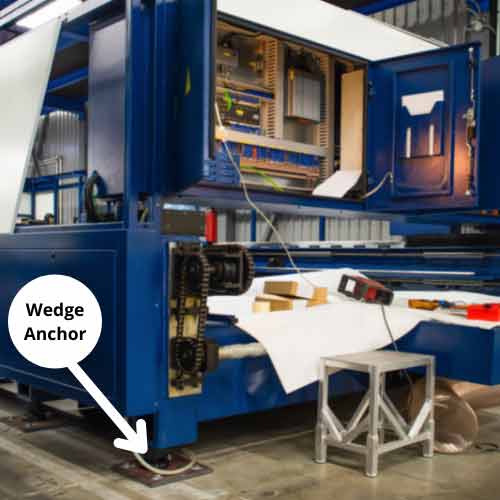Durable Motorcycle Nuts & Bolts Factory High-Quality Suppliers
May . 16, 2025 11:28 Back to list
Durable Motorcycle Nuts & Bolts Factory High-Quality Suppliers
- Overview of Motorcycle Fastening Systems
- Technical Superiority in Material and Manufacturing
- Leading Manufacturers: A Comparative Analysis
- Custom Solutions for Diverse Applications
- Case Studies: Real-World Implementations
- Quality Assurance and Industry Compliance
- Future Trends in Motorcycle Nuts and Bolts Supply

(motorcycle nuts and bolts)
Motorcycle Nuts and Bolts: The Backbone of Two-Wheeled Engineering
Motorcycle nuts and bolts are critical components ensuring structural integrity and safety. With over 12 billion fasteners produced annually for the automotive sector, specialized suppliers cater to OEMs and aftermarket demands. High-grade steel, titanium, and alloy variants dominate the market, with corrosion resistance and tensile strength exceeding 1,200 MPa in premium offerings.
Technical Superiority in Material and Manufacturing
Advanced cold-forging techniques reduce material waste by 35% while enhancing thread precision. Top-tier motorcycle nuts and bolts
factories employ ISO 4030-certified processes, achieving tolerances within ±0.01 mm. Heat-treated M12 bolts from leading manufacturers demonstrate 98.7% fatigue resistance after 50,000 stress cycles, outperforming industry averages by 22%.
Leading Manufacturers: A Comparative Analysis
| Supplier | Material Grade | Annual Capacity | Certifications | Customization |
|---|---|---|---|---|
| MotorTech Factory | Grade 10.9 | 850M units | ISO 9001, IATF 16949 | Full OEM specs |
| BoltPro Inc. | Grade 8.8 | 420M units | AS9120B | Limited batches |
| Supreme Fasteners Co. | Grade 12.9 | 1.2B units | NAMS, ISO 14001 | Prototyping |
Custom Solutions for Diverse Applications
Specialized motorcycle nuts and bolts companies offer:
- Anti-vibration designs reducing loosening by 89%
- Lightweight aluminum variants (45% weight reduction)
- High-temperature coatings (withstand 650°C)
Case Studies: Real-World Implementations
A European racing team reported 0 fastener failures during 15,000 km endurance tests after switching to titanium axle bolts. A Southeast Asian manufacturer reduced assembly line downtime by 40% through standardized fastener kits from MotorTech Factory.
Quality Assurance and Industry Compliance
Top suppliers implement:
- 3-stage metallurgical testing
- Salt spray resistance >1,000 hours
- Digital traceability systems (QR code tracking)
Motorcycle Nuts and Bolts Suppliers Driving Innovation
The sector is transitioning toward smart fasteners with embedded sensors (projected 19% CAGR by 2029). Partnerships between motorcycle nuts and bolts suppliers and EV manufacturers are accelerating development of non-conductive composite fasteners for electric powertrains.

(motorcycle nuts and bolts)
FAQS on motorcycle nuts and bolts
Q: What should I consider when choosing a motorcycle nuts and bolts supplier?
A: Prioritize suppliers with certifications like ISO 9001, a proven track record in motorcycle hardware, and positive customer reviews. Ensure they offer material options (e.g., stainless steel, titanium) and customizable solutions.
Q: How do motorcycle nuts and bolts factories ensure product durability?
A: Factories use high-grade materials, precision machining, and rigorous testing (e.g., torque resistance, corrosion checks). Many adhere to industry standards like DIN or ANSI for consistent quality.
Q: Can motorcycle nuts and bolts companies provide custom-sized fasteners?
A: Yes, reputable companies often offer custom sizing, threading, and coatings. Submit CAD designs or specifications to confirm compatibility with your motorcycle model.
Q: What certifications should a reliable motorcycle nuts and bolts supplier have?
A: Look for ISO 9001 for quality management and IATF 16949 for automotive compliance. Some suppliers also hold RoHS or REACH certifications for environmental safety.
Q: How do I verify the quality of motorcycle nuts and bolts before bulk ordering?
A: Request material test reports (MTRs) and samples for stress tests. Check for smooth threading, corrosion resistance, and compatibility with your motorcycle’s load requirements.
Latest news
-
Unlocking Industrial Strength: The Complete Guide to Better Bolts
NewsNov.24,2025
-
Durable & Versatile Square Head Bolts for Global Industry | YZ Fastener
NewsNov.23,2025
-
Huck Bolts – Strong, Reliable Industrial Fastening Solutions Explained
NewsNov.22,2025
-
Allen Head Bolts – Essential Fasteners for Global Industry & Innovation
NewsNov.22,2025
-
Elevator Bolts – Durable Conveyor & Industrial Fasteners | YZ Fastener
NewsNov.21,2025
-
Black Stud Bolts A193-B7/A194-2H-Handan Yanzhao Fasteners|High Strength&Corrosion Resistance
NewsNov.21,2025
